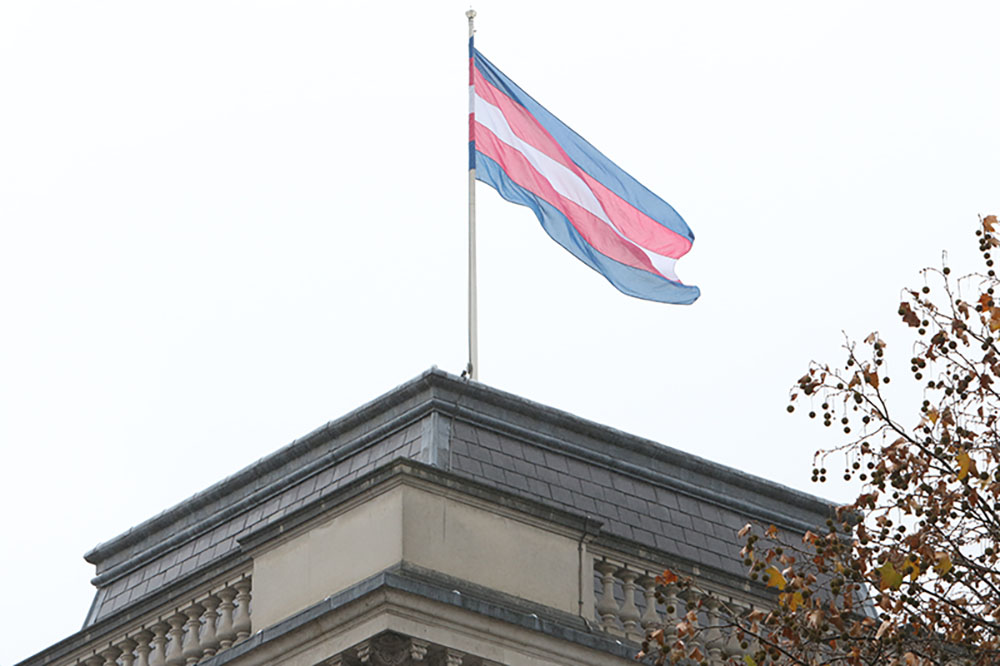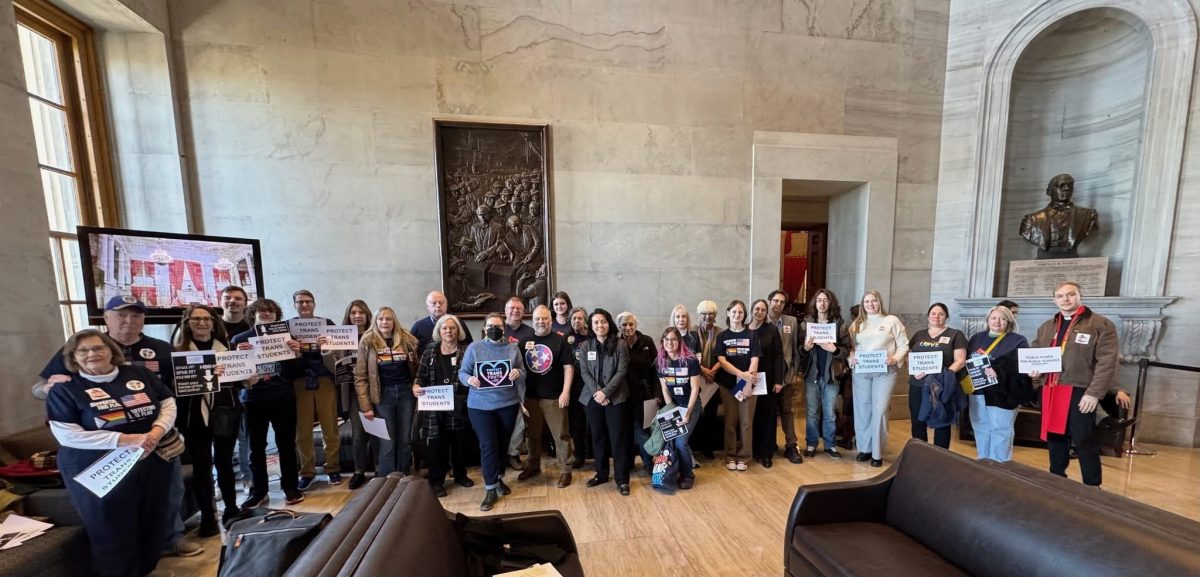By Bean Gast, Staff Writer
Last month, faculty members received an email stating that “students, faculty, and staff are not required to: use a person’s preferred name if the preferred name is not the individual’s legal name or a derivative thereof, or use a person’s preferred pronouns if not consistent with the individual’s sex.” This is in response to SB0937, coinciding with the Campus Free Speech Protection Act, which claims to be protecting those who choose not to use someone’s preferred name or pronouns within public schools.

Despite the fact that this policy directly impacts me as a student, I was completely unaware of it. I was confused why only faculty would be receiving this email since the law pertains to everyone at Pellissippi State Community College. After speaking with the Executive Director of Institutional Compliance and Title IX Coordinator, George Underwood, he clarified that the intention was for everyone to be notified; he immediately apologized and sent out a duplicate email to students.
“I would hope that if a professor is asked by a student to use that student’s preferred name or use the [preferred] pronouns, I would hope that the teacher or instructor will voluntarily do that,” Underwood says. “Now what this law says is if that professor says I’m not going to do it, the student can’t make the professor do it, the college can’t make the professor do it.”
After speaking with Underwood, who is not in a position to provide his personal opinion, I sought out faculty members who would openly speak their mind. A brave faculty member came forward to provide their opinion on the matter, speaking anonymously.
“Not only can I bully you, but I can surveil you,” the faculty member says of the State of Tennessee. “I can police you. I can watch which bathroom you go into. And so what you’ve essentially done is turn citizens, first of all, against each other, but you started a witch hunt.”
They went on to say that this policy is contradictory to recent federal laws that are aiming to increase accessibility in the classroom and make education accessible to everyone. How does someone feel safe when their identity is not only being disrespected but also ignored? A big concern for them is that this law is basically “state-sanctioned bullying and discrimination,” permitting schools to become a hostile environment.
Since receiving that email last month, faculty have not received any guidance from the college and have no way of knowing how to approach this policy in the classroom to ensure that everyone feels safe. The anonymous faculty member summarizes the situation, saying, “The next step for me was to speak with students about how they perceive this policy and how they feel they will be affected by it.”
“At first glance, it definitely seems very, very scary,” says a student worker at the Blount Campus with the initials DR. “This could out people that don’t want to be outed. This could be really, really bad. But on the flip side, it also brings up, well, why do I have to use preferred names and pronouns that infringe on my free speech?”
Her perspective was interesting in the way that she was able to see both sides, recognizing the dangers of this bill while still understanding how others could perceive it. She went on to say, “But you know, you can give anyone free speech. No one’s going to be free of the consequences of that speech.”
The policy states that students, faculty, and staff are not required to use preferred names and preferred pronouns, meaning there are no consequences. There may not be punishment; however, there is the result of making those around you feel unsafe, as misgendering and dead-naming are tactics used to invalidate trans folk, alienating them to the point of suicide.
Travis Johnson, a trans student who has been directly affected by previous school policies, says, “Even though it is free speech, it’s also just disrespectful to call someone something they don’t want to be called in general. You should be expected to be respectful to people you know, to your students, or to your professors.”
Johnson shared with me the challenges he’s faced since middle school as a trans person in the public school system. He came out as trans later in middle school and suddenly faced a policy that prevented him from being called his preferred name. One of his teachers would only refer to him as “Sir” to avoid using his deadname and avoid misgendering him. Another obstacle he faced was the basic necessity of using the bathroom. He was prohibited from using the men’s restroom and didn’t align with the women’s restroom; instead, he would walk to the opposite side of the building to use the nurse’s bathroom.
It’s very clear to Johnson that this policy is targeting trans folks, but he expresses that, “Pellissippi [State] is a very accepting school in my experience at least, and that surprised me honestly, but I’m very appreciative of it.”
Following my conversations with students and faculty, I decided to reach out to Tennessee Equality Project (TEP). Policy Analyst Bean Chapman brought up some valid points, saying, “You know, we have people who believe, well, I can misgender all day long, [I can do] whatever I want to do because the law says. Well, there is actually a very strong federal statute, which is the Civil Rights Act, Title 7, that says, you cannot harass someone based off of their sex.”

At what point does this become discrimination against sex? At what point does this become sexual harassment? There is no way for students to know their professors’ sex that was assigned at birth unless they had their birth certificate, which would be a FERPA violation. So what this really comes down to is profiling, assuming someone’s gender based on how you perceive them.
Chapman provided a Policy Brief to better understand how this policy is affecting the queer community and how to combat it.
“We are fighting for and advocating for equality, equity, safety, and inclusion, and policies in creating a culture that also embraces and enforces that,” Chapman says of the TEP mission. “So it has to go beyond passing laws and legislation. It has to be that it’s also adopted in the climate.”
I first met Bean Chapman at a TEP event called “Day on the Hill,” where we spoke to our representatives at the Capitol in Nashville. I was overwhelmed by being in a new environment, while watching my rights get taken away from me, as the gavel hit the table. Chapman was and still is extremely knowledgeable on policy, which inspired me to further educate myself.
That day, I spoke with my representative, Senator Richard Briggs, who laughed in my face when I brought up transgender suicide rates. I was extremely discouraged and decided to join my friends as they talked with their representative, Lowell Russell (R-21). I was astonished to find out that he voted against his party in response to our conversation with him. This experience pushed me to continue to show up in the community because change is possible.
Chapman summarizes this perfectly, saying, “You know, planting the seed, I think there’s a lot of power in that as well. The consistent showing up, having that face-to-face relationship, is very powerful, and we just need more people willing to do that. It’s just people, numbers of people.”
It’s especially important for those living in rural communities to show up and continue showing up. Many people living in rural communities share spaces with their representatives and may even know them personally. When that’s the case, it’s easier for representatives to see through the chaos, hear through the chatter, and recognize humanity.
The policy claims to be protecting freedom of speech, though it is very clear to me that the State intends to silence queer people and to make trans folk feel so unsafe that they are forced out of public spaces. To combat this, folks can change their preferred name by going into myPellissippi, clicking on “More Options,” then “Student Records,” and finally “Add/Change Preferred Name.” There are more details found here.
Even though this bill may not be directly impacting you, it infringes upon freedom of speech, meaning YOU could be next. Therefore, it is extremely important for cisgendered allies to take a stand for their fellow trans/nonbinary neighbors.





